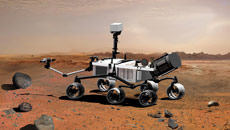What if your computer can distinguish even expressions for complex or seemingly contradictory emotions such as 'happily disgusted' or 'sadly angry'?
Researchers at Ohio State University have found a way for computers to recognise 21 distinct facial expressions.
“We have gone beyond facial expressions for simple emotions like happy or sad. We found a strong consistency in how people move their facial muscles to express 21 categories of emotions,” said Aleix Martinez, a cognitive scientist and associate professor of electrical and computer engineering at Ohio State.
That is simply stunning. That tells us that these 21 emotions are expressed in the same way by nearly everyone, at least in our culture, he added.
Until now, cognitive scientists have confined their studies to six basic emotions - happy, sad, fearful, angry, surprised and disgusted.
For their study, Martinez and his team photographed 230 volunteers making faces in response to verbal cues such as “you just got some great unexpected news” ('happily surprised'), or “you smell a bad odour” ('disgusted').
In the resulting 5,000 images, they painstakingly tagged prominent landmarks for facial muscles, such as the corners of the mouth or the outer edge of the eyebrow.
They found 21 emotions - the six basic emotions, as well as emotions that exist as combinations of those emotions such as 'happily surprised' or 'sadly angry'.
The researchers referred to these combinations as 'compound emotions'.
While 'happily surprised' can be thought of as an expression for receiving unexpected good news, 'sadly angry' could be the face we make when someone we care about makes us angry.
'Happily disgusted', for instance, creates an expression that combines the scrunched-up eyes and nose of 'disgusted' with the smile of 'happy'.
The model was able to determine the degree to which the basic emotions and compound emotions were characterised by a particular expression.
While the model is meant to be a tool for basic research in cognition, Martinez can foresee potential applications in the treatment of disorders that involve emotional triggers, such as post-traumatic stress disorder (PTSD), or a lack of recognition of other people's emotions, such as autism.
The paper appeared in the journal Proceedings of the National Academy of Sciences.





